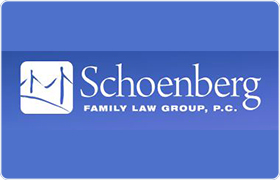Windsor Adoption Lawyer, California
Sponsored Law Firm
-
 x
x

Click For More Info:
-
Schoenberg Family Law Group, P.C.
575 Market St Suite 4000 San Francisco, CA 94105» view mapDivorce & Family Law Over 30 Years of Experience
Schoenberg Family Law Group, P.C., recognizes that family law matters involve complex, sensitive issues that can have a lasting impact on you and your family.
800-781-8440
Morna G. Challoner
Farms, Alimony & Spousal Support, Child Support, Adoption
Status: In Good Standing Licensed: 16 Years
 Debra Schoenberg San Francisco, CA
Debra Schoenberg San Francisco, CA AboutSchoenberg Family Law Group, P.C.
AboutSchoenberg Family Law Group, P.C. Practice AreasExpertise
Practice AreasExpertise
